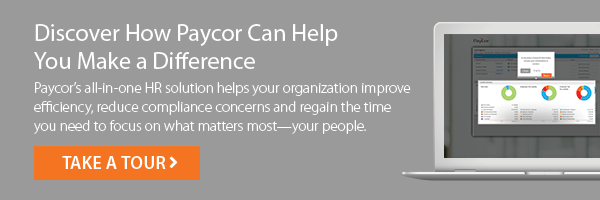Small business owners wear a lot of hats. They may have to be marketers, hiring managers, and even insurance experts, in charge of evaluating benefits packages for their employees. The problem is, a lot of business leaders are in the dark about the myriad compliance requirements surrounding health insurance coverage. If your company plans to provide health insurance for employees, you need to understand your options, and their legal implications.
5 Important Health Insurance Requirements to Know
- Small businesses with fewer than 50 full-time employees don’t have to provide health insurance under the ACA (Affordable Care Act).
- Companies with more than 50 or more full-time employees (or full-time equivalent employees) in the previously reported calendar year may be subject to the employer shared responsibility provisions of the ACA. This means that the employer must provide essential coverage to their employees (and families) or make a comparable payment to the IRS.
- Employers are required to provide employees with a Summary of Benefits and Coverage (SBC) document explaining health plan coverage and costs.
- Coverage costs of an employer-sponsored group health insurance plan must be reported by employers on their employees’ W-2.
- Small businesses offering health insurance must offer it to all eligible employees when they become eligible for coverage, and that eligibility period should not extend beyond 90 days.
5 Health Insurance Options to Consider in 2025
Some small businesses – like those with fewer than 50 employees – don’t directly offer employees a health care coverage plan. These companies can still assist employees with their health care needs. Many business leaders go with one of these health insurance options.
- QSEHRA – A Qualified Small Employer Health Reimbursement Arrangement or QSEHRA (pronounced Q-Sara) is one extremely helpful benefits option for small businesses. In this arrangement, small business owners put aside a set amount of non-taxed money every month to cover employees’ health care expenses. Employees are responsible for paying their own medical bills or insurance premiums, but the employer then reimburses the submitted expenses with those saved pre-tax dollars.
- ICHRA – With an ICHRA or Individual Coverage Health Reimbursement Arrangement, employers provide a monthly tax-free allowance to their employees for individual health coverage expenses. This enables employees to shop for insurance outside of an employer’s group health plan or when an employer does not offer health insurance at all.
- Traditional Group Health Insurance – This is the standard group health coverage that everyone’s familiar with. Businesses can either work with an insurance company directly or use an insurance broker to purchase group health plan coverage for all of their employees.
- Group Coverage HRA – Often known as a GCHRA, this is an employer-funded medical expense reimbursement plan. It allows a business to reimburse its employees tax-free for eligible out-of-pocket expenses and health insurance premiums. It’s most often paired with a high-deductible health plan (HDHP).
- Association Health Plan – AHPs show that there is strength in numbers. Several small businesses (those that are either in geographic proximity or in the same industry) can band together and gain the purchasing power needed to buy large group coverage.

Rule Changes for Larger Businesses in 2025
If your business employs 50 or more employees, you need to be aware of recent changes to health plan cost-sharing limits. Employer-sponsored health coverage must not exceed 9.02% of an employee’s income if it is to satisfy ACA affordability requirements for 2025. This is up from 8.39% in 2024. Make sure this change doesn’t push your plan into “unaffordable” territory.
State Health Insurance Laws
If your business offers insurance, you need to be aware of both state and federal laws around health programs. Regulations vary from one U.S. state to another. This can get especially complex if your business operates in more than one state, or if you employ remote workers.
Pro Tip: familiarize yourself with your state’s Department of Insurance to stay compliant.
Paycor Can Help
If your company decides it’s ready to provide health insurance for your employees, we can make the task much easier. Paycor’s Benefits Administration Software is an efficient way to get all your people on board so you can get back to focusing on your HR strategy. From ACA reporting that minimizes complexity and guarantees compliance to streamlined payroll processes with taxes and HRA contributions factored in, the software enables businesses to offer best-in-class benefits while reducing administration time and costs. Take a free guided product tour today.

Previous:
Florida HR Compliance








